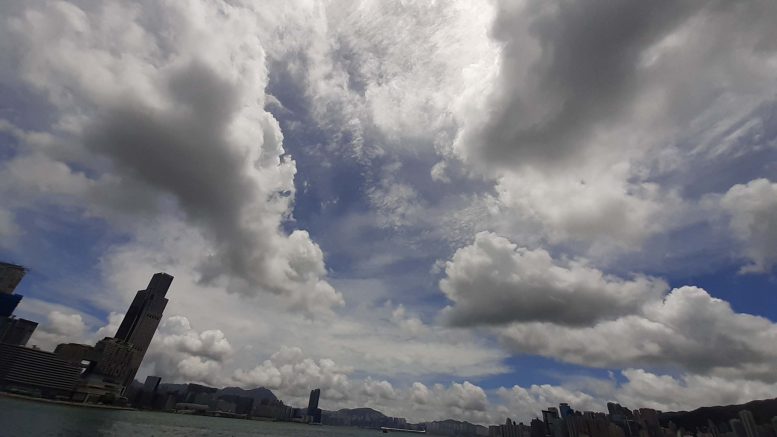By Chris Yeung —
Set against the official talk of Hong Kong advancing “from stability to prosperity,” any warspeak of crackdown against “colour revolution” and “soft resistance” sounds odd. Worse, it runs the risk of enduring an atmosphere of unease in the city, thus defeating the authorities’ wish of an early return to normality.
If Chief Executive John Lee had decided to keep the belligerent talk in his 2023 Policy Address announced on October 24, it is because of the political imperative of giving equal importance to the all-important task of safeguarding national security – one of Xi Jinping’s signature strategies – in the government’s ruling blueprint.
Though often loaded with minute policy initiatives, the colour used for the cover of the annual address has been routinely chosen with an explicit message.
Lee told reporters early last week the speech continued to use last year’s green colour because it “symbolises the hope, vitality, harmony and stability brought about by the authorities’ governance.”
In line with the message, the official English title read “A vibrant economy for a caring community”, with nothing on national security. In the Chinese version, it added “striving for development and doubling happiness.”
Economy and livelihood are clearly the two major themes in Lee’s blueprint, the second in his five-year term, together taking up most of the speech.
Markedly missing from the government’s blueprint were constitutional development and human rights protection as if they are jobs being done. They are not.
Under Basic Law Article 45, the ultimate aim is the selection of the Chief Executive by universal suffrage. How and when to achieve the ultimate aim has been left untouched in Lee’s maiden and latest blueprint.
On the human rights front, legislation on archives and right of access to information had been on the agenda of the previous administration. They have vanished from the government’s policy agenda.
The gravity of Hong Kong politics, however, further shifted from the right of election and civil liberties to the responsibility of safeguarding national security and nurturing a sense of nationhood among the youths.
Citing remarks made by senior Chinese official Xia Baolong during a visit to Hong Kong in April, Lee said in his address “the root causes for ‘chaos’ have not yet been eliminated and the foundation of ‘orderly governance’ needs to be fortified.”
“We must stay vigilant against the possible resurgence of street violence, be conscious of covert rebellions through ‘soft resistance’, and watch out for those anti-government movements overseas looping back to Hong Kong.”
“We must guard against those seeking to provoke conflict, misinform or spread rumours through different channels, and remain alert to acts of ‘soft resistance’ in different forms that can undermine governance of our country and the HKSAR.”
In his speech, Lee reiterated a plan to complete legislating Article 23 by 2024 as he announced new moves to step up education on national security and patriotism in schools.
While keeping its iron-fisted tactic in eliminating resistance against the authorities, be they hard or soft, Lee has moved to intensify indoctrination of national identity and sense of nationhood. Local education department will formulate plans to adapt the just-promulgated national law on patriotic education in local schools’ curriculum.
The notion of soft resistance was first mooted by former director of the central government’s Liaison Office Luo Huining in April. It was later repeatedly uttered by Secretary for Security Chris Tang Ping-keung.
Among the prime targets of crackdown against soft resistance are the media, arts and culture group, film and publications. Lee’s reference to “anti-government movements overseas” has dropped hints at closer surveillance of Hong Kong activists and groups formed overseas after the 2019 social unrest.
Although Lee’s warning of acts against soft resistance are hardly new nor substantive, it has sent a clear signal of a prolonged and widened battle against what the authorities deemed as “soft resistance” that could undermine governance of the HKSAR.
“Soft resistance” is not a legal term, but it has carried weight following a court case last week.
Li Jiexin, 69, was convicted Tuesday of unlicensed performance and fundraising after publicly playing “Glory To Hong Kong,” which was a song featured in the 2019 social movement. Judge Amy Chan said in the verdict Li’s performance amounted to “soft resistance that instigated social conflicts”.
Critics fear “soft resistance” has become a convenient label for the authorities to demonise and punish deeds and acts of dissent in various forms, including songs, books, wall painting, pictures. The list goes on.
All were and will be done under a cover in green colour and in the name of “hope, vitality, harmony and stability.”
ends


Be the first to comment on "Tough warning against soft resistance"